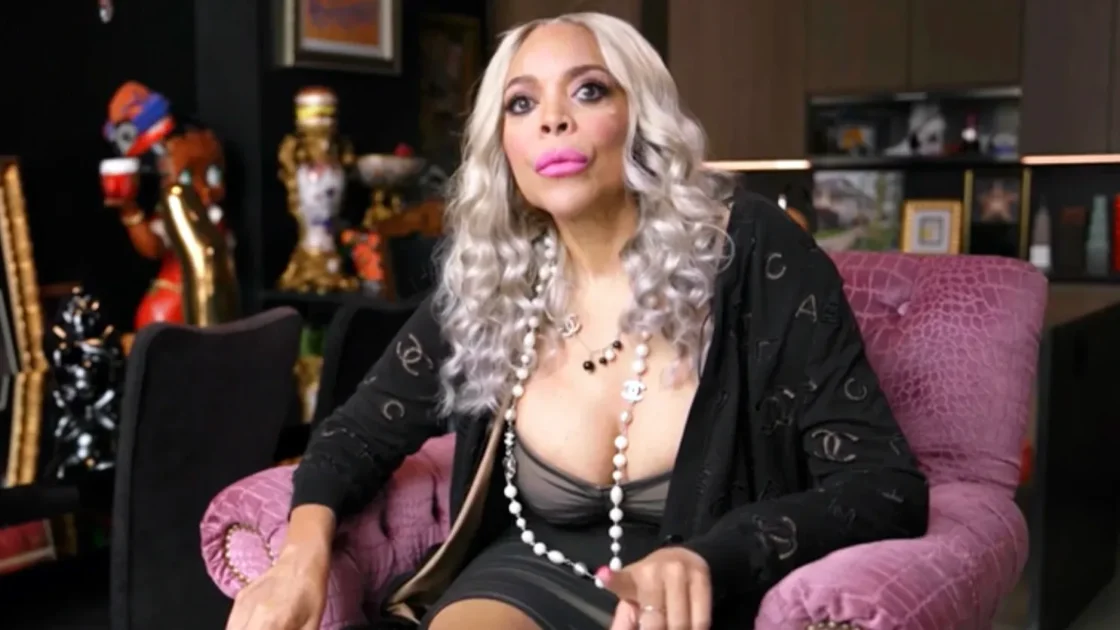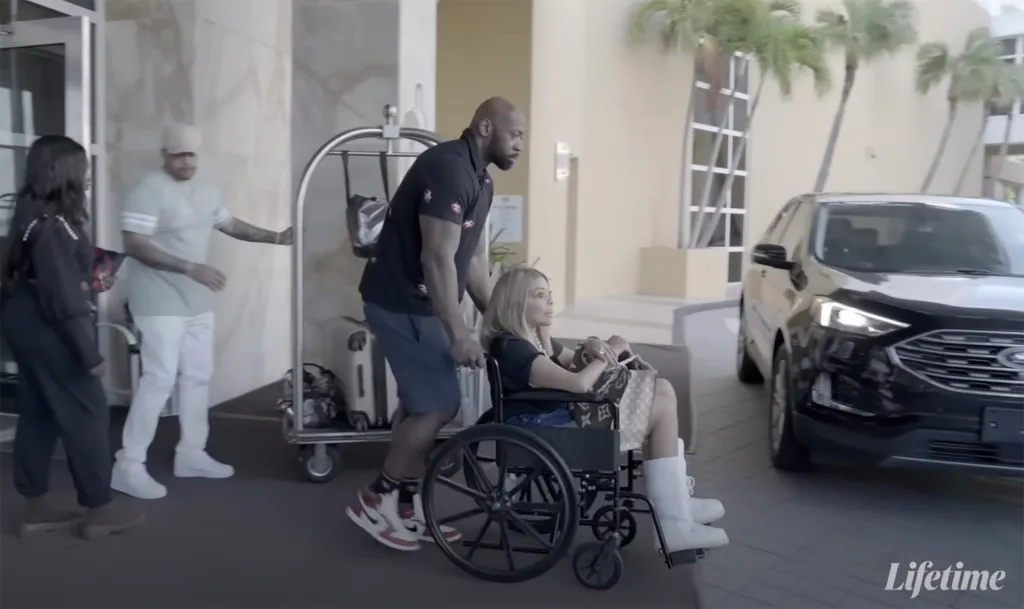
Wendy Williams, the beloved former talk show host, made a rare public appearance Thursday morning when she called into The Breakfast Club, making a deeply emotional plea for help. The 60-year-old star, who has been living under a court-ordered guardianship since 2022, described her current situation as nothing short of “emotional abuse.” Speaking candidly, Williams revealed the isolation she feels in the care facility where she has been staying, surrounded by elderly patients, with little to no access to the outside world.
“I feel like I’m in prison,” Williams said, breaking down her circumstances. “I am not cognitively impaired, but I feel like I am in prison.”
Her remarks on The Breakfast Club left listeners stunned and concerned, as the former daytime TV icon described her life being reduced to isolation in a facility she described as a “luxury prison.” Her distressing message is part of an ongoing battle to break free from what she believes is an unjust guardianship imposed upon her, despite claims by her care team that she has been diagnosed with frontotemporal dementia and aphasia.

Trapped in a “Luxury Prison”
Wendy Williams has been living in a care facility in New York, where she says her life is controlled and monitored. In the emotional interview, she painted a vivid picture of her day-to-day life—one that seems more like a solitary confinement than a place for recovery.
“I’m in this place where the people are in their 90s and their 80s and their 70s,” Williams explained. “There’s something wrong with these people here on this floor.”
Williams went on to share that her daily routine is filled with silence and isolation. She keeps her door closed, watches TV, listens to the radio, and gazes out the window as the days slip by. For a woman who once ruled the airwaves with her sharp wit and fearless commentary, this stark contrast to her former life is both painful and dehumanizing.
The Disappearance of Her Cats
Perhaps one of the most heartbreaking parts of Wendy Williams’ testimony was the revelation that her beloved cats, whom she had always treasured, had been taken from her.
“They’re gone,” Williams said, her voice breaking. “I wanted them with me.”
The loss of her pets, combined with the restrictive nature of the facility, has only added to her sense of helplessness. As she expressed, her access to basic freedoms—like contact with her loved ones—has been severely restricted. She cannot even make calls to those who care for her; only they can call her.
Williams shared that she has been forced to spend the last three birthdays alone in the facility, as the high security measures make it difficult for her to have any personal freedom.
“This Is Emotional Abuse”
Throughout the conversation, Wendy Williams emphasized that she is not suffering from cognitive impairment, as has been claimed by her legal guardians and caretakers. She took aim at those who have labeled her “incapacitated,” saying, “Do I seem that way, god damn it?”
She was not shy about calling out the guardianship system, labeling her current living situation as “emotional abuse.” “This is what is called emotional abuse,” she stated firmly, her voice filled with pain.
Williams’ niece, Alex Finnie, also joined the call, providing her perspective on the situation. She stressed that Wendy’s mental state and abilities do not align with the labels of incapacity that have been placed upon her. According to Alex, Williams is lucid and capable of communication—an assessment that directly contradicts the claims made by her legal guardianship team.
“My aunt sounds great,” Alex said, defending her aunt’s mental state. “We’re talking to her, we’re seeing her, and this does not match an incapacitated person.”
A Life of Isolation
Beyond the restrictions on her communication, Wendy Williams also revealed the incredibly limited access she has to the outside world. “I have $15,” she told The Breakfast Club hosts, explaining the minimal resources at her disposal. Even more distressing, she claimed that she is unable to leave the facility or take walks outside—basic freedoms that most people take for granted.

Williams’ desperate plea underscores the isolation she feels, as well as the emotional toll it’s taking on her. She expressed concern over her aging father, who is about to turn 94, saying she may not even be able to see him on his birthday.
“I don’t know if I’m going to be able to see my dad on his 94th birthday,” she said through tears. “The day after that is not promised.”
The Call for Freedom
As the conversation on The Breakfast Club continued, Williams made a heartfelt plea for people to support her cause. Her niece, Alex, urged listeners to sign a petition on Change.org and use the hashtag #FreeWendy to amplify the call for her release from guardianship.
“We’re not going to stop,” Alex declared. “We want her to live a life outside of the walls that she’s been forced into. She deserves better.”
Wendy Williams’ call for help is a stark reminder of how guardianship and conservatorship systems can sometimes go awry, leaving vulnerable individuals trapped and isolated under the control of others. While the legal battle continues, Williams has made it clear that she is not giving up on her fight for freedom and autonomy.
As her niece put it, “She is being punished for whatever reason that other people are coming up with as to why she has to be kept in this position.” Wendy Williams deserves a voice—and with her call to The Breakfast Club, she has certainly made hers heard.
